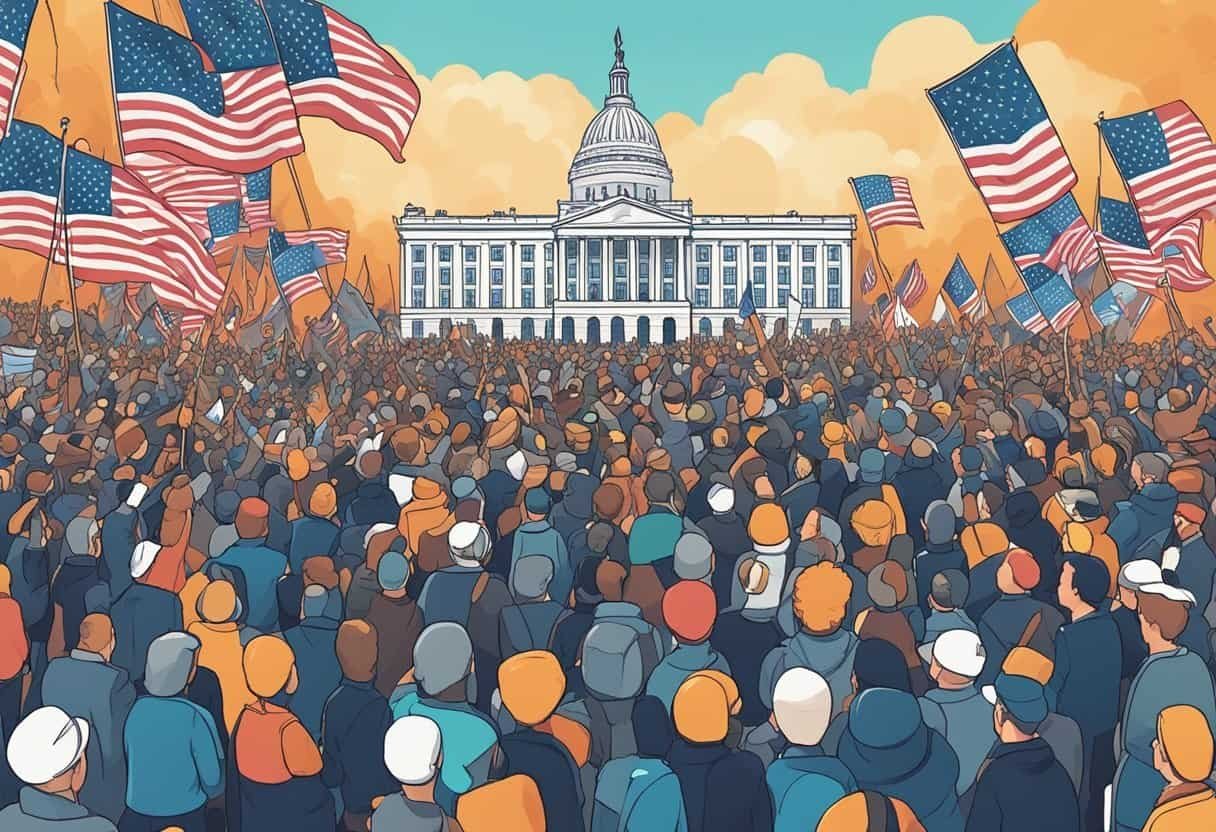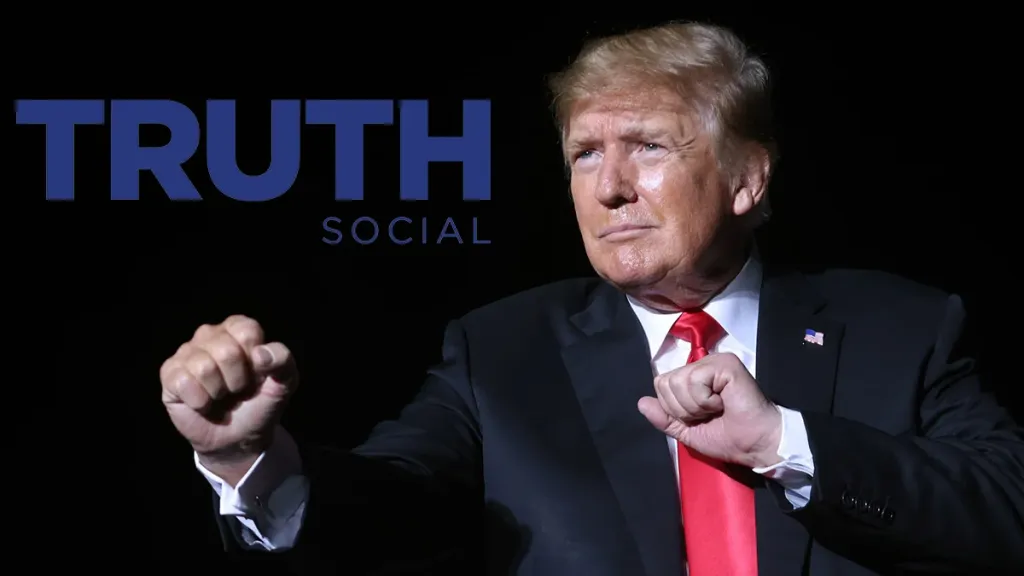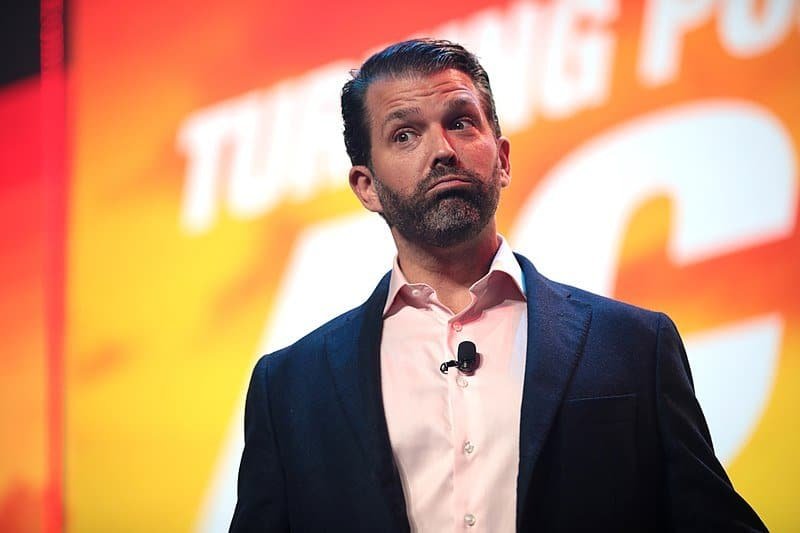Anti Trump: A Comprehensive Look at the Opposition Movement
Anti-Trump sentiment has been a prominent topic in American politics since the 2016 presidential election. While some Americans have celebrated Trump’s presidency, others have been vocal in their opposition to his policies, rhetoric, and leadership style. The reasons for this opposition are complex and multifaceted, and they have given rise to a variety of anti-Trump movements and narratives.

One of the key origins of anti-Trump sentiment is his unconventional approach to politics. Trump’s rhetoric, which often includes personal attacks and divisive language, has been a major source of controversy and criticism. Additionally, many Americans have expressed concern about Trump’s policies, particularly his stance on issues like immigration, climate change, and healthcare. These concerns have fueled a range of anti-Trump movements, from grassroots protests to organized political campaigns.
Key Takeaways
- Anti-Trump sentiment has been a prominent topic in American politics since the 2016 presidential election.
- The reasons for this opposition are complex and multifaceted, and they have given rise to a variety of anti-Trump movements and narratives.
- Trump’s unconventional approach to politics, controversial rhetoric, and policies on issues like immigration, climate change, and healthcare have been major sources of controversy and criticism.
Origins of Anti-Trump Sentiment
The origins of anti-Trump sentiment can be traced back to the political stances, controversial policies, and public statements and behavior of the former President.
Political Stances
Trump’s political stances, particularly his stance on immigration, have been a major source of controversy. He has advocated for building a wall along the US-Mexico border, and has implemented policies that separated families at the border. These policies have been criticized by many as inhumane and un-American.
Controversial Policies
Trump’s policies on healthcare, climate change, and foreign relations have also been sources of controversy. He attempted to repeal the Affordable Care Act without a viable replacement plan, withdrew the US from the Paris climate agreement, and engaged in a trade war with China that hurt US farmers and manufacturers.
Public Statements and Behavior
Trump’s public statements and behavior have also contributed to anti-Trump sentiment. He has been accused of making racist, sexist, and xenophobic comments, and has been caught on tape bragging about sexually assaulting women. He has also been criticized for his use of Twitter to attack political opponents and spread misinformation.
Overall, the origins of anti-Trump sentiment can be attributed to a combination of factors, including Trump’s political stances, controversial policies, and public statements and behavior.
Anti-Trump Movements
Since Donald Trump’s election in 2016, there have been various movements and campaigns against him. Here are some of the most prominent ones:
Not My President
The “Not My President” movement emerged immediately after the 2016 election. It was a slogan and hashtag used by many who refused to accept Trump as their president. The movement was largely made up of young people, people of color, and those who identified as LGBTQ+. The movement organized protests and marches across the United States, with the largest one taking place in Washington D.C. on Inauguration Day.
The Women’s March
The Women’s March was a global protest that took place on January 21, 2017, the day after Trump’s inauguration. The march was organized to advocate for women’s rights, immigration reform, healthcare reform, LGBTQ+ rights, racial equality, and workers’ rights. The Women’s March was one of the largest single-day protests in U.S. history, with an estimated 5 million people participating worldwide.
Impeachment Campaigns
Trump faced two impeachment campaigns during his presidency. The first one began in September 2019, after a whistleblower complaint alleged that Trump had solicited foreign interference in the 2020 U.S. presidential election. The second one began in January 2021, after Trump was accused of inciting the January 6th insurrection at the U.S. Capitol. While Trump was ultimately acquitted both times, the impeachment campaigns galvanized the anti-Trump movement and highlighted the deep divisions within the United States.
Overall, the anti-Trump movements were a response to what many saw as an unprecedented threat to democracy and human rights. While Trump is no longer in office, the movements he inspired continue to shape American politics and society.
Media and Anti-Trump Narratives
Mainstream Media Coverage
The mainstream media has been a key player in the anti-Trump narrative since the beginning of his presidency. Many news outlets have been critical of Trump’s policies and actions, with some even accusing him of being a threat to democracy. The New York Times, for example, has published numerous articles that are critical of Trump, including one that claims his “disinformation machine” is winning the war over disinformation.
Social Media Campaigns
Social media has also played a significant role in the anti-Trump narrative. Many individuals and organizations have used social media platforms to voice their opposition to Trump and his policies. The “Never Trump” movement, for example, gained traction on social media during the 2016 presidential campaign and continued to be active throughout his presidency. Additionally, the #Resistance movement, which began shortly after Trump’s election, has used social media to organize protests and rallies against his administration.
Books and Publications
Books and publications have also contributed to the anti-Trump narrative. Numerous books critical of Trump have been published since his election, including Michael Wolff’s “Fire and Fury” and Bob Woodward’s “Fear.” These books have been widely read and discussed, and have helped shape public opinion of Trump and his administration. Additionally, publications such as The Atlantic and The New Yorker have published articles critical of Trump and his policies.
Overall, the media has played a significant role in the anti-Trump narrative, with mainstream media coverage, social media campaigns, and books and publications all contributing to the discourse.
International Perspectives on Trump

Global Protests
During his presidency, Donald Trump was a polarizing figure not only in the United States but also around the world. His policies, statements, and actions sparked protests in several countries, including the United Kingdom, Germany, France, and Japan. Some of the largest protests occurred in the United Kingdom, where thousands of people took to the streets to express their opposition to Trump’s policies on immigration, climate change, and women’s rights.
Foreign Policy Critiques
Trump’s foreign policy was also a subject of criticism from many international leaders and experts. Some criticized his approach to North Korea, which involved a series of provocative tweets and threats of military action. Others criticized his decision to withdraw from the Paris climate agreement, the Iran nuclear deal, and other international agreements. Many also criticized his decision to move the U.S. embassy in Israel to Jerusalem, which was seen as a provocative move that could undermine the prospects for peace in the region.
International Agreements and Relations
Trump’s approach to international agreements and relations was also a subject of criticism. His “America First” policy was seen by some as a rejection of multilateralism and a retreat from the United States’ traditional role as a global leader. Trump’s decision to impose tariffs on steel and aluminum imports from several countries, including Canada and the European Union, also strained relations with some of the United States’ closest allies. Additionally, his approach to immigration, including the travel ban on several Muslim-majority countries, was criticized by many as discriminatory and harmful to the United States’ reputation as a beacon of freedom and democracy.
Overall, Trump’s presidency was marked by controversy and criticism from many international perspectives. While some praised his tough stance on issues such as trade and immigration, others saw his policies as harmful to the United States’ standing in the world and detrimental to global stability and cooperation.
Legal Challenges and Investigations
Since his presidency, Donald Trump has faced numerous legal challenges and investigations. Here are some of the most notable ones:
The Mueller Report
In 2017, Robert Mueller was appointed as special counsel to investigate Russian interference in the 2016 United States presidential election and any possible links between the Trump campaign and the Russian government. The investigation resulted in the Mueller Report, which was released in 2019. The report found insufficient evidence to charge Trump or any of his campaign officials with conspiracy with the Russian government. However, the report did not exonerate Trump of obstruction of justice.
Emoluments Clause Lawsuits
The Emoluments Clause of the US Constitution prohibits federal officials from accepting gifts or payments from foreign governments without the consent of Congress. Trump has been accused of violating this clause by continuing to profit from his businesses while in office. Multiple lawsuits have been filed against him, including one by the attorneys general of Maryland and Washington, D.C. These lawsuits argue that Trump has received payments from foreign governments through his hotels and other businesses.
Election Interference Allegations
Trump has been accused of soliciting foreign interference in the 2020 United States presidential election. In 2019, Trump was impeached by the House of Representatives for abuse of power and obstruction of Congress related to allegations that he solicited Ukraine to investigate his political rival Joe Biden. Trump was acquitted by the Senate in 2020.
In addition, the US Justice Department has investigations underway into both Trump’s actions in the 2020 election and his retention of highly classified documents after departing the White House in 2021 1.
Overall, Trump’s legal challenges and investigations have been a significant part of his presidency and post-presidency.
Footnotes
Economic Impact of Anti-Trump Sentiment

The anti-Trump sentiment has had a significant impact on the US economy. The following subsections highlight some of the ways in which this sentiment has affected the market, trade policy, and businesses.
Market Reactions
The market has been reacting to the anti-Trump sentiment since the beginning of his presidency. According to a FactCheck.org article, the economy lost 2 million jobs in Trump’s last year in office. This decline was partly due to the COVID-19 pandemic, but the anti-Trump sentiment also played a role. Many investors were uncertain about Trump’s policies and the impact they would have on the economy. As a result, they were hesitant to invest in the market, which caused a decline in the stock prices.
Trade Policy Opposition
Trump’s trade policies were a major source of controversy during his presidency. He imposed tariffs on China and other countries, which led to retaliatory tariffs and trade wars. The anti-Trump sentiment played a significant role in the opposition to these policies. Many people believed that the tariffs were hurting American businesses and consumers more than they were helping them. According to a New York Times opinion piece, Trump’s protectionist policies would continue if he were re-elected, which could lead to further economic damage.
Impact on Businesses
The anti-Trump sentiment has had a significant impact on businesses in the US. According to a Wharton Magazine article, Trump’s proposed policies on immigration and trade could hurt businesses that rely on immigrant labor or exports. For example, if Trump were to deport millions of undocumented workers, it could lead to labor shortages in industries like agriculture and construction. Similarly, if he were to impose tariffs on imports, it could hurt businesses that rely on imported goods.
In conclusion, the anti-Trump sentiment has had a significant impact on the US economy. The market has reacted negatively to his policies, trade policy opposition has been strong, and businesses have been affected. These factors have contributed to the decline in the economy during his presidency.
Cultural and Social Impact

Influence on Art and Entertainment
During his presidency, Donald Trump’s policies and rhetoric had a significant impact on the art and entertainment industry. Many artists and performers used their platform to express their opposition to his policies and views. For example, the 2017 Women’s March saw a number of musicians and performers, including Madonna and Alicia Keys, take to the stage to voice their concerns about Trump’s presidency.
In addition to this, Trump’s election also led to a surge in politically charged art and music. Many artists created works that were critical of Trump and his administration, while others used their art to express solidarity with marginalized communities.
Public Discourse and Polarization
Trump’s presidency was marked by a significant increase in polarization and divisiveness in American society. His rhetoric and policies often pitted different groups against each other, leading to a breakdown in public discourse and a rise in hate crimes.
One of the most notable examples of this was Trump’s travel ban, which targeted several predominantly Muslim countries. The ban was widely criticized as discriminatory, and led to protests and legal challenges. Similarly, Trump’s comments about immigrants and refugees often stoked fear and resentment, leading to a rise in hate crimes against these groups.
Impact on Education and Academia
Trump’s presidency also had a significant impact on education and academia. His administration was marked by a number of controversial policies, including cuts to education funding and efforts to roll back protections for transgender students.
In addition to this, Trump’s rhetoric and policies often put him at odds with the academic community. For example, his skepticism of climate change and rejection of mainstream scientific consensus on a number of issues led to criticism from scientists and academics.
Overall, Trump’s presidency had a significant impact on American culture and society. While his policies and rhetoric were often controversial and divisive, they also sparked a renewed sense of activism and engagement among many Americans.
Responses to Anti-Trump Sentiment

Trump’s Counterstatements
Former President Donald Trump has been known to respond to criticism with counterstatements. He has often used social media platforms to refute claims made against him. In 2023, The New York Times published an opinion piece titled “The Roots of Trump’s Rage” that analyzed Trump’s psychology and the reasons behind his tendency to respond aggressively to criticism. However, Trump dismissed the article as “fake news” and tweeted, “I am a very calm and rational person. I don’t get angry easily.”
Supporter Reactions
While some Americans have expressed anti-Trump sentiment, others have remained loyal supporters of the former president. In 2024, Politico reported that J.D. Vance, a Republican candidate for the Ohio Senate, faced backlash for his past negative comments about Trump. However, Vance’s supporters defended him, arguing that his comments were taken out of context and that he has since expressed support for Trump.
Policy Adjustments
In response to anti-Trump sentiment, some Democrats have adjusted their policies to appeal to voters who are critical of the former president. In 2024, The New York Times reported that some Democratic candidates were running on an “anti-Trump sentiment” platform. For example, Harry Dunn, a former Capitol Police officer who gained national attention for his role in the January 6th insurrection, ran for Congress on a platform of “saving democracy” from Trump’s influence.
Post-Presidency Anti-Trump Efforts
Ongoing Legal Proceedings
Since leaving office, former President Trump has been facing several legal challenges. The most notable of these is the ongoing investigation by the Manhattan District Attorney’s office into possible tax and bank fraud committed by the Trump Organization. Additionally, several women who have accused Trump of sexual misconduct have filed lawsuits against him.
Despite these legal challenges, Trump has remained defiant, claiming that the investigations are politically motivated and that he has done nothing wrong. He has also continued to criticize the legal system and the media, claiming that they are biased against him.
Political Activism
Trump has also remained active in politics since leaving office. He has endorsed several candidates for office, including Republican Glenn Youngkin in the Virginia gubernatorial race. He has also continued to hold rallies and make public appearances, where he has criticized President Biden and the Democratic Party.
Trump’s continued involvement in politics has raised concerns among some Republicans, who worry that his divisive rhetoric could hurt the party’s chances in future elections. However, many of Trump’s supporters remain loyal to him, and he continues to be a major force in the Republican Party.
2024 Election Speculations
Finally, there has been much speculation about whether Trump will run for president again in 2024. While he has not officially announced his candidacy, he has hinted that he is considering it. Many of his supporters have urged him to run, and several polls have shown him as the frontrunner in the Republican primary.
However, there are also many Republicans who are opposed to the idea of Trump running again. Some worry that he will be a liability in the general election, while others believe that it is time for the party to move on from Trump and focus on new leadership.
Overall, it is clear that Trump’s post-presidency efforts have been focused on maintaining his influence in politics and fighting back against his critics. Whether he will be successful in these efforts remains to be seen, but there is no doubt that he will continue to be a major figure in American politics for the foreseeable future.
Frequently Asked Questions

What are the main criticisms of Donald Trump’s presidency?
Donald Trump’s presidency faced criticism on various fronts, including his handling of the COVID-19 pandemic, his divisive rhetoric, and his policies on immigration and race. He was also accused of abusing his power by pressuring Ukraine to investigate his political rival, Joe Biden, which led to his impeachment.
How have anti-Trump movements influenced American politics?
Anti-Trump movements, such as the Women’s March and Black Lives Matter, have brought attention to social justice issues and mobilized voters to participate in elections. They have also led to the rise of progressive politicians, such as Alexandria Ocasio-Cortez and Ilhan Omar, who challenge traditional Democratic Party values.
What legal actions have been taken against Donald Trump?
Donald Trump faced several legal actions during his presidency, including investigations into his campaign’s ties to Russia, accusations of sexual misconduct, and lawsuits related to his business dealings. He was also impeached twice by the House of Representatives, although he was acquitted both times by the Senate.
In what ways did Donald Trump’s policies differ from traditional Republican values?
Donald Trump’s policies differed from traditional Republican values in several ways. He embraced protectionism and criticized free trade agreements, which went against the party’s pro-business stance. He also took a more isolationist approach to foreign policy and was critical of NATO and other international alliances.
How did Donald Trump’s presidency impact international relations?
Donald Trump’s presidency was marked by a more confrontational approach to foreign policy, which strained relations with traditional allies and adversaries alike. He withdrew from several international agreements, such as the Paris climate accord and the Iran nuclear deal, and engaged in high-stakes negotiations with North Korea and China.
What were the outcomes of the impeachment trials against Donald Trump?
Donald Trump was impeached twice by the House of Representatives, first in 2019 on charges of abuse of power and obstruction of Congress, and again in 2021 on charges of incitement of insurrection. However, he was acquitted both times by the Senate, with most Republican senators voting to acquit him.











